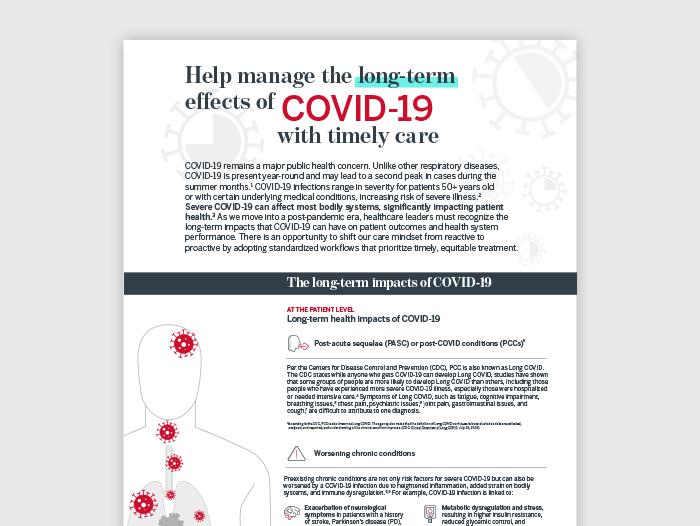Auto logout in seconds.
Continue LogoutA 62-year-old man in Germany reportedly received 217 COVID-19 shots over the course of 29 months, providing researchers a unique opportunity to study the immune response of a hypervaccinated individual, according to a new study published in Lancet Infectious Diseases.
How 217 COVID-19 shots affected this man's immune system
According to the study, the unnamed man received his first shot in June 2021 and proceeded to receive a total of 217 shots through November 2023. Of those shots, 130 were confirmed by a prosecutor investigating whether the man was part of a scheme to sell COVID-19 vaccination cards — an investigation that ended with no criminal charges. The remaining shots were self-reported by the man.
The man agreed to provide researchers with medical information as well as blood and saliva samples. When the research period started, the man had reportedly received 213 shots and then proceeded to receive four more during the study, against the researchers' medical advice.
When researchers analyzed the man's blood chemistries, they found no abnormalities linked to his hypervaccination. They hypothesized the man's immune system could have lost its ability to combat the coronavirus, similar to how some chronic diseases like HIV and hepatitis B cause immune cells to become fatigued after frequent exposure to a pathogen.
However, the researchers found that while the quantity of T cells and B cells in the man's immune system were increased by the hypervaccination, the quality of their immune response was not affected.
"If you take the allegory of the immune system as an army, the number of soldiers is higher, but the soldiers themselves are not different," said Kilian Schober, an immunologist at Uniklinikum Erlangen and co-author on the study.
Schober added that the man "would have been just as well protected if he had gotten a normal number of three to four vaccinations" rather than 217.
In total, the man received eight different vaccine formulations, including the mRNA vaccines from Pfizer-BioNTech and Moderna, as well as a vector-based vaccine from Johnson & Johnson and a recombinant-protein vaccine from Sanofi.
"The observation that no noticeable side effects were triggered in spite of this extraordinary hypervaccination indicates that the drugs have a good degree of tolerability," Schober said.
The man did not report any vaccine-related side effects, and, so far, has not had a COVID-19 infection, according to repeated antigen and PCR testing between May 2022 and November 2023. However, the researchers noted it's unclear whether his lack of a COVID-19 infection is specifically due to his hypervaccination status.
"Perhaps he didn't get Covid because he was well-protected in the first three doses of the vaccine," said Emily Happy Miller, an assistant professor of medicine and of microbiology and immunology at Albert Einstein College of Medicine, who was not involved in the study. "We also don't know anything about his behaviors."
Experts caution against hypervaccination
Schober and the other researchers emphasized that this is an individual case study and the results aren't generalizable. They also said they don't support hypervaccination as a way to increase immunity.
"The benefit is not much bigger if you get vaccinated three times or 200 times," Schober said.
It's possible that other patients given so many doses of the vaccines would experience side effects, Schober added, making it unwise for anyone to do so.
According to Miller, the study is interesting from a scientific perspective, but it's important to take it with a grain of salt since it's an individual case study. People should look to public health recommendations, which are based on large randomized controlled trials, for guidance, she added.
"I don't think any physician or public health official would recommend doing what this gentleman did. This is really uncharted territory," Miller said. "Talk to your doctor, follow the recommended vaccine schedules, and that should be the best thing to keep you both protected from Covid and healthy and safe." (Cheng, CNN, 3/6; Mueller, New York Times, 3/6; Stern, The Atlantic, 3/6)
Develop a strong COVID-19 vaccine communication strategy that shares information, addresses patient concerns, and encourages uptake.
Don't miss out on the latest Advisory Board insights
Create your free account to access 1 resource, including the latest research and webinars.
Want access without creating an account?
You have 1 free members-only resource remaining this month.
1 free members-only resources remaining
1 free members-only resources remaining
You've reached your limit of free insights
Become a member to access all of Advisory Board's resources, events, and experts
Never miss out on the latest innovative health care content tailored to you.
Benefits include:
You've reached your limit of free insights
Become a member to access all of Advisory Board's resources, events, and experts
Never miss out on the latest innovative health care content tailored to you.
Benefits include:
This content is available through your Curated Research partnership with Advisory Board. Click on ‘view this resource’ to read the full piece
Email ask@advisory.com to learn more
Click on ‘Become a Member’ to learn about the benefits of a Full-Access partnership with Advisory Board
Never miss out on the latest innovative health care content tailored to you.
Benefits Include:
This is for members only. Learn more.
Click on ‘Become a Member’ to learn about the benefits of a Full-Access partnership with Advisory Board
Never miss out on the latest innovative health care content tailored to you.


